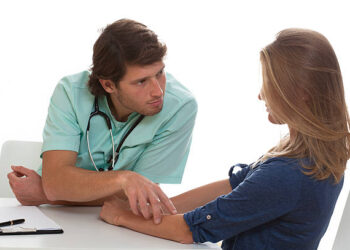
I hear the question very often, “When is it safe to have sex without contraception to avoid pregnancy?”. However, I found out there is no way to talk about that question without talking much about pregnancy and its relationship to a woman’s menstrual period.
The short answer to the question of when it is safe to have sex without getting pregnant is that there is no absolute period during which a woman can have unprotected sex without getting pregnant. In the absence of contraception or any other reproductive abnormality in either or both partners, there is often a 50-50 chance of getting pregnant.
The reasons why that is so are not far-fetched. We will explore these reasons, the physiology of pregnancy, as well as how to prevent pregnancy before or after unprotected sexual intercourse.
The Physiology of Pregnancy
Pregnancy is a physiological state resulting from the fertilization of the female egg or ovum by the sperm. This process takes place in the fallopian tube (a structure found in the woman’s reproductive tract) a few hours or days after unprotected sexual intercourse.
The fertilized ovum becomes the embryo, which grows to become the fetus at about 8 weeks of gestation. The fetus further grows and develops body parts and is later delivered as the baby at term.
The entire process of fertilization is dependent on several factors, including the ability of the sperm to migrate through the vagina and uterus (womb) into the fallopian tube. Many contraceptive methods prevent pregnancy by either completely preventing sperm from getting beyond the vagina or reducing the effective ability to migrate towards the ovum.
Menstruation plays an important role in pregnancy because the menstrual cycle dictates when a matured egg will be available for fertilization.
The menstrual cycle
The menstrual cycle is the cyclical sequence of physiologic changes in a woman’s reproductive tract characterised by periodic shedding of the endometrial lining of the uterus, alongside changes in the ovaries that lead to the development and release of a mature egg for fertilization.
It starts at menarchy and ends at menopause. It is temporarily interrupted by pregnancy which prevents the endometrium from shedding off to allow the newly fertilized ovum to implant and develop into a baby. It can also be interrupted by conditions such as stress, hormonal imbalance, pelvic infections and inflammatory diseases, as well as the effect of certain medications.
The normal menstrual cycle is about 28 ± 7 days. The normal menstrual period lasts for about 2-7 days and flow volume is about 20-70ml throughout a given menstrual period. These are usually expected to be constant for each woman once established.
For example, the menstrual period of a woman with a period length of 4 days in a 28-day cycle is expected to maintain these throughout the year with minimal variations. This can however be altered by pregnancy, hormonal issues, stress, pelvic infections and inflammation, and certain other factors.

Important Questions About Pregnancy and Menstruation
Beginning with the very important question most people have “When is it safe to have sex to avoid pregnancy, we will now see the answers to some important questions about pregnancy and menstruation.
How many days after a period is safe to avoid pregnancy?
There is no absolutely safe period to avoid pregnancy after unprotected sexual intercourse but we can be able to establish that the farther away from the menses, the more likely you can get pregnant and vice-versa.
In the menstrual cycle diagram above, you can see that ovulation occurs on day 14 of the menstrual cycle. The period around this day is the most fertile period in a woman’s cycle. Periods far away from it are the least fertile periods.
For example, say your period flows for four days, usually during this period the ovum is not yet mature for fertilization. If you have sex during your period, you are less likely to become pregnant. These four days represent the first four days of your menstrual cycle. The egg begins to mature from day 5 to day 14 when it is released for fertilization.
But another important thing to know is that the sperm can be viable for an average of 7 days in the female reproductive tract. That means sperm released into the vagina on day 7 of the menstrual period can remain viable to the 14th day when ovulation occurs. The released egg can remain viable for 12 to 24 hours and can be fertilized by a sperm during this period.[1]Ovulation and conception | The Royal Women’s Hospital
People use this calendar method to track their fertile period, knowing well that they are least fertile away from their ovulation and most fertile around day 14. This information can be harnessed both for fertility and contraception.
However, if contraception is desired, it is not a very effective method as we now know that there is no absolute safe period to avoid pregnancy. The most important reason is that the sperm can live an average of 7 days in the female genital tract.
Can you get pregnant during your menstrual flow?
It is physiologically impossible to get pregnant during your menstrual period. This is because, at that time, no egg had been released for fertilization. Also, the endometrium which should accommodate the fertilized embryo is unstable and shedding off at that time. Lastly, the uterine environment during menses does not so much favour sperm viability and active motility.
What can you do if you had unprotected sex a few days after your period?
If you accidentally had unprotected sex a few days after your period, it is not a guarantee to fold your hands and do nothing no matter how close it is to your period, particularly if you don’t desire to get pregnant. You can get an emergency contraceptive pill (commonly called Postinor).
Postinor is a progestogen hormonal contraceptive that impairs the ability of the sperm to migrate to the ovum for fertilization. It should be used within 48 to 72 hours of unprotected coitus.
At other times, it is best to use a pre-exposure contraceptive like a condom, injectables, oral contraceptive pills, or implants before having sex, as these have more efficacy than post-exposure contraceptives.
How to avoid getting pregnant using the menstrual cycle
A good knowledge of the menstrual cycle will help you understand the changes that occur in the body during the cycle. It can also help you understand when it is most likely or least likely to achieve pregnancy. But none of these things are a hundred per cent certain.
It is unsafe to rely solely on calculations of the days of the menstrual cycle for reasons well-explained in this post. If you don’t desire pregnancy, the best thing is to opt for some available contraceptive methods. This can guarantee more contraception than using the cycle.
If you have already engaged in unprotected coitus, the emergency contraceptive (Postinor) can be your next solution to avoid getting pregnant.
References
















